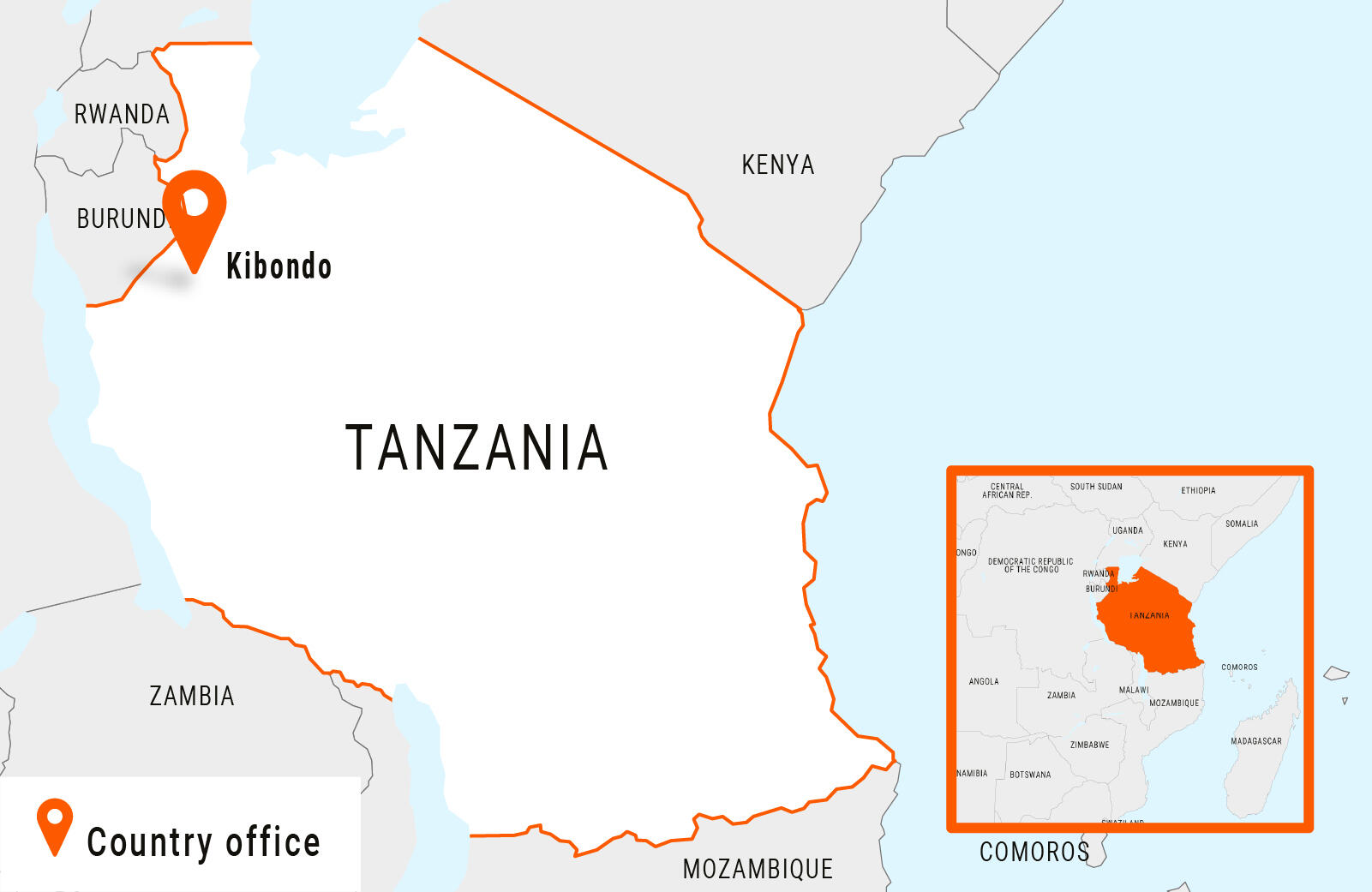What’s happening in Tanzania?
When civil war broke out in Burundi in 2015 – and conflict swept across DR Congo a few years later – thousands of refugees fled across the border to Tanzania. Many now live in Mtendeli and Nduta refugee camps close to the Burundian border, which lack adequate shelter, drinking water, education facilities and other basic services due to limited funding.
What’s more, the introduction of stringent policies in these camps has reduced opportunities for refugees to earn a living and become self-reliant. This has left them completely dependent on humanitarian aid in their host country.

Region: East Africa
Population: 69.4 million
Total displaced: 3,889
Refugees hosted: 229,096
What’s happening in Tanzania?
When civil war broke out in Burundi in 2015 – and conflict swept across DR Congo a few years later – thousands of refugees fled across the border to Tanzania. Many now live in Mtendeli and Nduta refugee camps close to the Burundian border, which lack adequate shelter, drinking water, education facilities and other basic services due to limited funding.
What’s more, the introduction of stringent policies in these camps has reduced opportunities for refugees to earn a living and become self-reliant. This has left them completely dependent on humanitarian aid in their host country.
Our response
We’re working with our partners in the following areas:
- Water, sanitation and hygiene – installing water supply systems and sanitation facilities, as well as distributing soap and other hygiene essentials.
- Shelter and settlements – providing emergency shelters, constructing more permanent homes and maintaining access roads in the refugee camps.
- Education – establishing safe learning spaces in camps, training teachers and running vital vocational skills sessions.
- Information, counselling and legal assistance – helping families obtain birth certificates and other legal documentation, so they can claim rights for their children.
Our operations
NRC office established: 2016
Areas of operation: Kigoma region
Country Director: Sumananjali Mohanty
Contact: Sumananjali.Mohanty@nrc.no

Our impact
In 2023, we assisted 219,582 people through our programmes in Tanzania:
-
1,803Education
-
23,263Shelter and settlements
-
11,354Information, counselling and legal assistance
-
219,498Water, sanitation and hygiene
Note: some people received more than one type of assistance.







